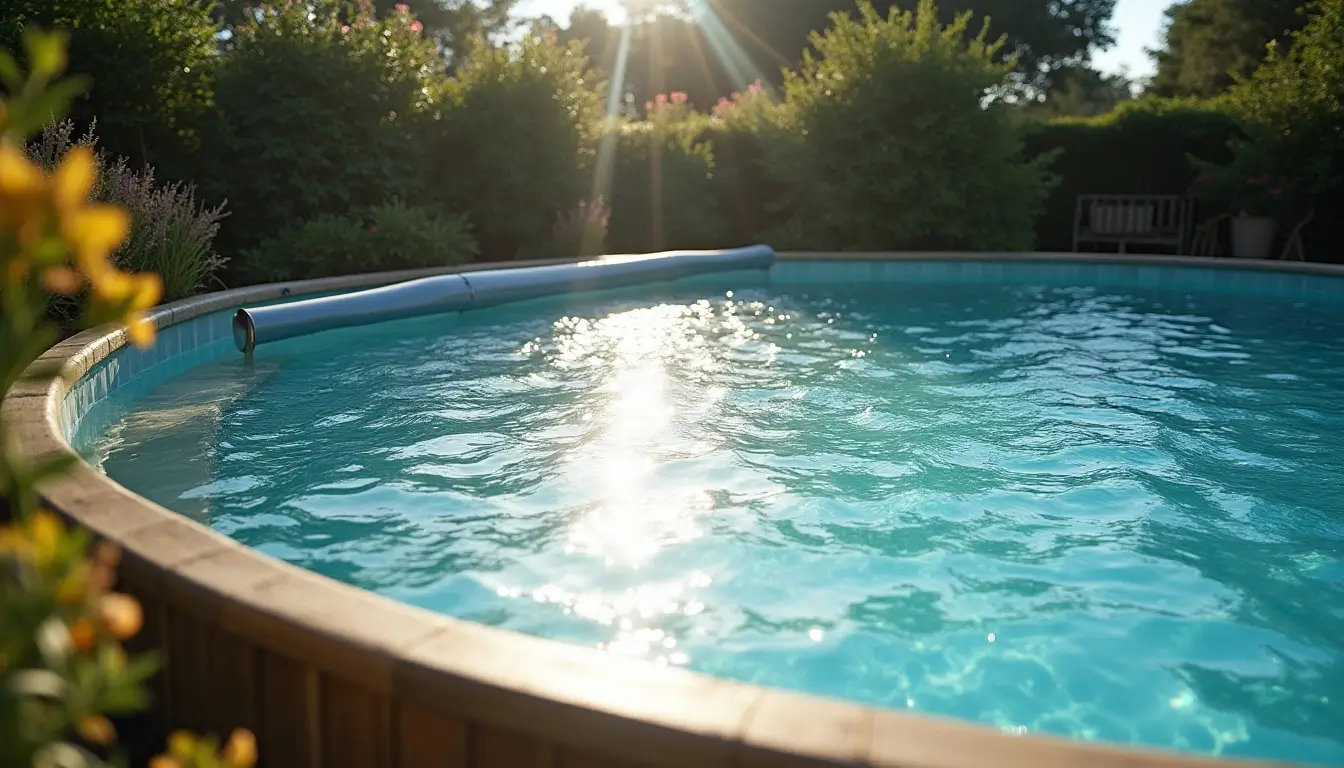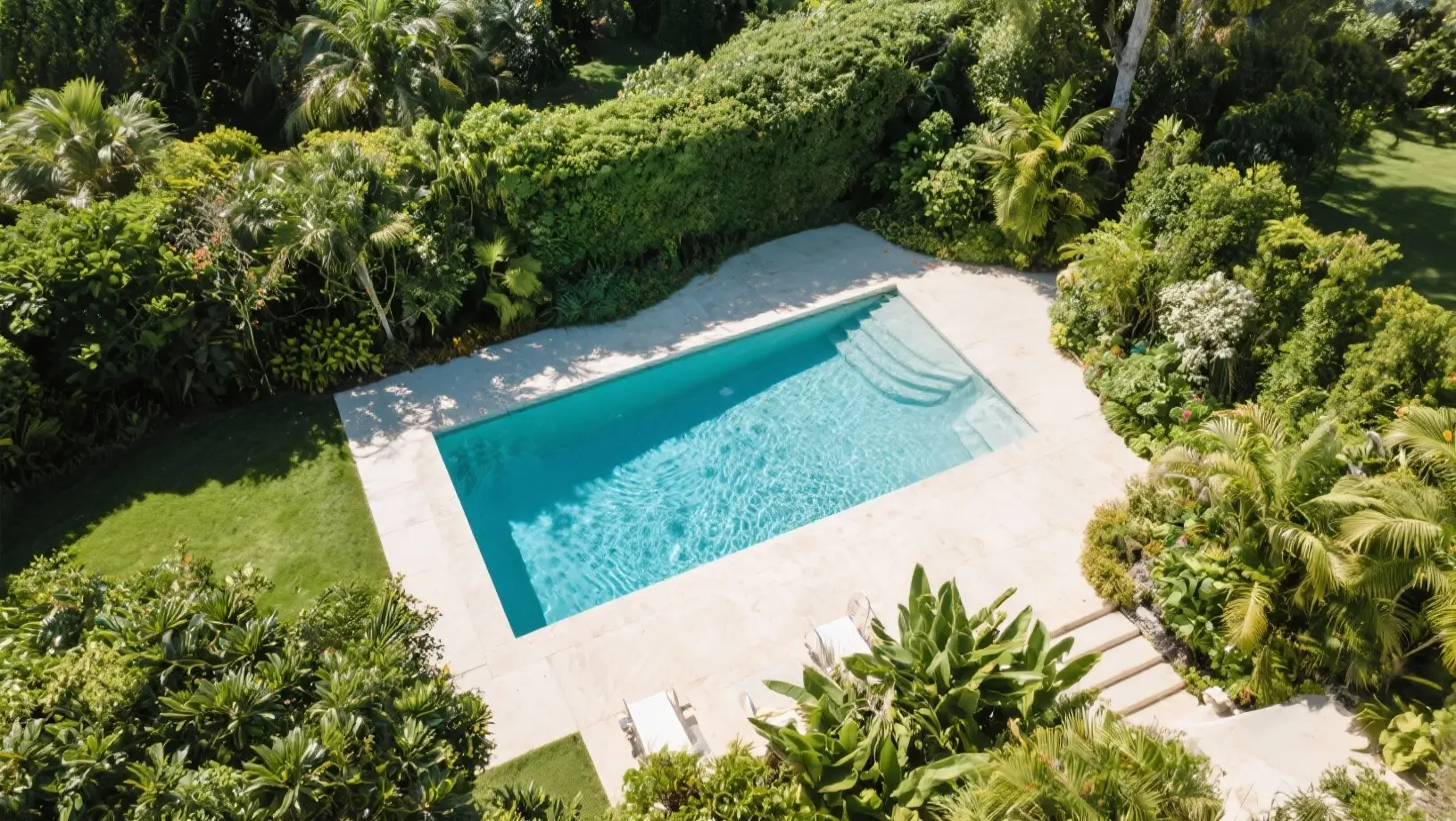The Truth About Magnesium Pools: Benefits That Swimmers Don't Know

Your body absorbs up to 500 ml of pool water every hour you swim. This makes magnesium pool benefits much more important than most swimmers realize. Swimming in a magnesium pool lets your skin absorb this beneficial mineral that provides remarkable physical and mental health advantages. Traditional pools just can't match these benefits.
Magnesium pools need substantially less chlorine than conventional saltwater pools. Standard pools maintain chlorine levels between 2.0 and 3.0 ppm, while magnesium pools need only 0.5-1.0 ppm. These pools have natural antimicrobial properties that keep water clean without the harsh chemical smell you get from chlorinated pools. The experience feels similar to taking a dip in the Dead Sea. Magnesium minerals cost more than traditional pool salt—about $35 for a 10 kg bag. These minerals contain magnesium chloride, potassium chloride, and sodium chloride. Many swimmers believe the benefits justify this extra cost.
This piece explores magnesium pools in detail. You'll learn what they are, their surprising health benefits, and the experience you can expect from swimming in these mineral-rich waters.
What is a Magnesium Pool and How Does It Work?
A magnesium pool works with a specialized filtration system that combines magnesium chloride with minerals like potassium and calcium. These pools use natural minerals instead of harsh chemicals to purify the water and support health.
The "hydroxinator" (also called a chlorinator) sits at the core of a magnesium pool system. It uses electrolysis to convert magnesium chloride into small amounts of chlorine. The system maintains only 0.5-1.0 ppm compared to traditional pools' 2.0-3.0 ppm. Lower chlorine levels make the water gentler on your skin and eyes without affecting sanitation.

Magnesium pools excel as natural flocculants. The magnesium binds with tiny dirt and debris particles to form larger clumps. The filter removes these larger particles easily, which creates crystal-clear water. This process reduces harmful chlorine by-products like chloramines by up to 40%.
Pool owners need to add minerals only when water levels drop or fresh water goes in. Converting existing pools requires draining, surface cleaning, and adding minerals (about 6 bags per 10,000 liters). The system needs 24 hours to stabilize.
Magnesium pools need fewer chemical treatments. Pre-adjusted cartridges monitor release rates automatically, so you won't need extra chlorine, clarifiers, or algaecides.
Benefits of Magnesium Pools
Magnesium pools deliver amazing healing benefits that go well beyond a refreshing swim. Your muscles will relax naturally as your skin absorbs magnesium, which helps reduce tension and speeds up recovery after workouts. Athletes and active people find these pools particularly helpful.
The mineral-rich water works wonders if you have skin conditions. Magnesium's natural anti-inflammatory properties help calm eczema, dermatitis, and psoriasis. Your skin becomes more elastic and softer instead of drying out in these mineral-rich waters.
People with joint pain get exceptional relief since magnesium reduces inflammation and helps movement. Water's natural buoyancy combined with magnesium's healing properties creates the perfect environment to ease arthritis symptoms.
Magnesium plays a vital role in mental wellness by controlling the body's response to stress. This mineral calms your nervous system naturally. Known as the 'anti-stress' mineral, it helps you relax and can lift your mood.
Better sleep comes naturally to regular magnesium pool users. The mineral helps control sleep-related neurotransmitters. Regular dips in these pools lead to deeper, more restful sleep.
The benefits don't stop there. Magnesium helps your blood vessels relax for better circulation. It boosts bone health through improved mineral balance and supports your body's natural detox processes.

What to Expect During and After a Swim
Swimming in a magnesium pool creates an instant difference in the water's feel against your skin. The water feels distinctively smooth, buoyant, and silky instead of the harsh sensation from traditional chlorinated water. The reduced surface tension lets you glide through the water almost effortlessly.
Your eyes stay comfortable with minimal irritation while swimming. The absence of strong chemical odors typical in chlorine pools makes breathing easier, especially for people with respiratory sensitivities.
The most remarkable difference shows up when you leave the water—you won't experience sticky residue, chlorine smell, or itchy skin. Your skin retains its natural moisture instead of feeling dried out. Swimmers often report softer and smoother skin, and some skip showering right after their swim.
Rinsing isn't strictly required, but it helps remove residual minerals and maintains good hygiene. All the same, some swimmers choose to keep the magnesium on their skin to extend its soothing benefits.
A magnesium pool swim can lead to deeper relaxation and better sleep quality. Magnesium absorbs through the skin and helps relax muscles, lower stress levels, and improve blood flow between your head and heart. These benefits contribute to more restful sleep patterns naturally.
Routine debris control helps magnesium systems stay crystal clear between manual cleanings. A modern robotic pool cleaner can handle floor, wall, waterline, and surface cleaning in one device, with app-based monitoring and a wireless charging dock.
Conclusion
Magnesium pools pair a smoother swim with simpler day-to-day care. By generating only the small amount of sanitizer needed (often around 0.5–1.0 ppm, versus the 2.0–3.0 ppm typical of standard systems), they keep eyes and skin more comfortable while maintaining sanitation. Their natural flocculation action helps tiny particles clump so filtration can polish the water without leaning on extra clarifiers.
That chemistry story translates into how the pool feels: less odor, less irritation, and water that many swimmers describe as distinctly “silky.” Pair those benefits with good housekeeping—skimming, filter checks, and debris removal—and you’ll consistently get the clarity magnesium owners rave about. When you want to minimize hands-on time, a cordless all-in-one robot that can scrub floors and walls and skim the surface is a practical add-on to keep particulates from building up between services.
Ready to streamline upkeep or explore automation that complements a magnesium system? Visit Aiper for more pool-maintenance devices and expert tips.

